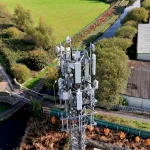Sponsored Links
The Internet is Running out of IP Addresses
Posted: 30th Oct, 2007 By: MarkJ
One of the Internet's earliest architects, Vint Cerf, has again reiterated his concern that the international network will run out of Internet Protocol (IP) addresses by 2010/11.
This is nothing new and has been bounding around I.T sites for a good three or four years now, yet as time runs out the need to fully adopt IPv6 as a replacement for existing IPv4 technology is becoming essential.
Typically every time somebody connects to the Internet an IP address is generated to identify that computer to other users on the network:
The BBC News Online item makes an interesting point although most consumers are unlikely to have any idea of the mechanics their connections are based off. It's unrealistic to expect users to demand something when many aren't even aware of its existence.
However the Internet is unlikely to stop working once IPv4 addresses run out, yet it could prevent new users being able to get a connection. It's probably more likely that people would just end up sharing IPs, which can lead to all sorts of problems (if a user you share your IP with is banned from a server then so are you).
For anybody interested, IPv6 addresses are 128bits long, written in hexadecimal and separated by colons. For example:
2ffe:1800:3525:3:200:f8ff:fe21:67cf
By comparison an IPv4 address is a lot easier to understand because it's only 32bits long, written in decimal and separated by periods. For example:
123.123.123.123
Most modern software, some routers and other networking hardware come with the ability to understand and use IPv6 alongside IPv4 technology, this has been occurring for some years now so as to prevent problems during the transfer. Sadly that's not the case for everything.
This is nothing new and has been bounding around I.T sites for a good three or four years now, yet as time runs out the need to fully adopt IPv6 as a replacement for existing IPv4 technology is becoming essential.
Typically every time somebody connects to the Internet an IP address is generated to identify that computer to other users on the network:
The current system, called IPv4 provides four billion addresses but the explosion in the number of devices which go online has led to the potential shortage.
Although IPv6 was standardised 10 years ago it has not been rolled out at speed. While modern computers, servers, routers and other online devices are able to use IPv6, internet service providers have yet to implement the system.
"The reason they haven't - which is quite understandable - is that customers haven't asked for it yet," said Mr Cerf, adding, "my job, whether with my Icann hat on or not, is to persuade them to ask for it."
Although IPv6 was standardised 10 years ago it has not been rolled out at speed. While modern computers, servers, routers and other online devices are able to use IPv6, internet service providers have yet to implement the system.
"The reason they haven't - which is quite understandable - is that customers haven't asked for it yet," said Mr Cerf, adding, "my job, whether with my Icann hat on or not, is to persuade them to ask for it."
The BBC News Online item makes an interesting point although most consumers are unlikely to have any idea of the mechanics their connections are based off. It's unrealistic to expect users to demand something when many aren't even aware of its existence.
However the Internet is unlikely to stop working once IPv4 addresses run out, yet it could prevent new users being able to get a connection. It's probably more likely that people would just end up sharing IPs, which can lead to all sorts of problems (if a user you share your IP with is banned from a server then so are you).
For anybody interested, IPv6 addresses are 128bits long, written in hexadecimal and separated by colons. For example:
2ffe:1800:3525:3:200:f8ff:fe21:67cf
By comparison an IPv4 address is a lot easier to understand because it's only 32bits long, written in decimal and separated by periods. For example:
123.123.123.123
Most modern software, some routers and other networking hardware come with the ability to understand and use IPv6 alongside IPv4 technology, this has been occurring for some years now so as to prevent problems during the transfer. Sadly that's not the case for everything.
Search ISP News
Search ISP Listings
Search ISP Reviews
Latest UK ISP News



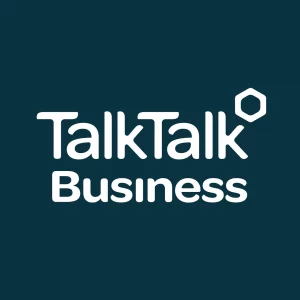
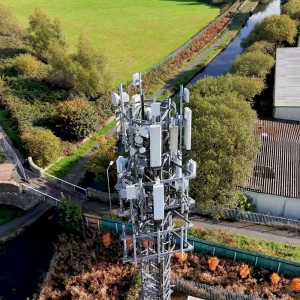

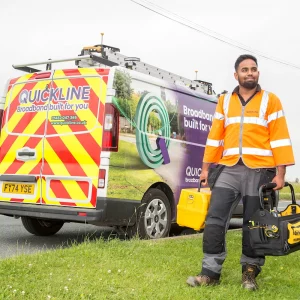
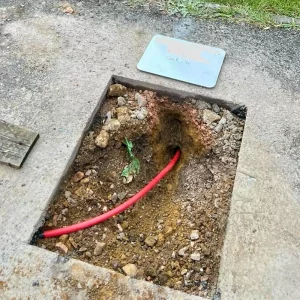
Cheap BIG ISPs for 100Mbps+
150,000+ Customers | View More ISPs
Cheapest ISPs for 100Mbps+
Modest Availability | View More ISPs
Latest UK ISP News
Helpful ISP Guides and Tips
Sponsored Links
The Top 15 Category Tags
- FTTP (6717)
- BT (3862)
- Politics (3033)
- Business (2733)
- Openreach (2628)
- Building Digital UK (2486)
- Mobile Broadband (2434)
- FTTC (2132)
- Statistics (2100)
- 4G (2062)
- Virgin Media (1997)
- Ofcom Regulation (1761)
- 5G (1692)
- Fibre Optic (1586)
- Wireless Internet (1581)
Sponsored
Copyright © 1999 to Present - ISPreview.co.uk - All Rights Reserved - Terms , Privacy and Cookie Policy , Links , Website Rules












